THE SIX Ss
THE SIX Ss
Six components of exemplary community health systems
Professional community health workers—proCHWs—are a powerful force in bringing quality primary healthcare to the world’s most remote communities. To be effective, community health workers must be skilled, salaried, supervised, and supplied by a well-functioning community health system operating at national scale and integrated into broader public systems via data and financing. We call these the Six Ss. In each country where we work, we partner with ministries of health to assess which of these components to prioritize, and we tailor our work to advance those goals.
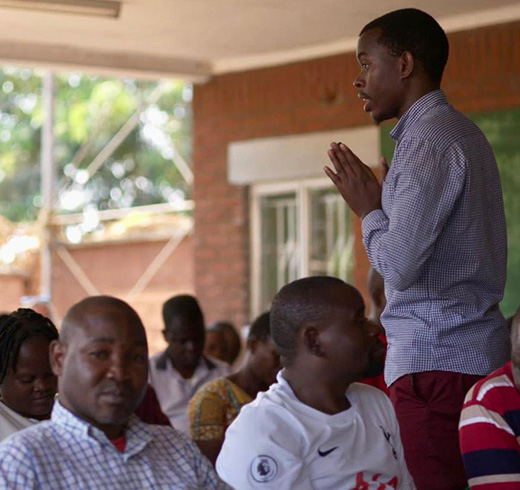
SKILLED
Like all professionals, community health workers need training to do their jobs effectively. This begins after recruitment, when they receive standardized training—often over the course of a few weeks—that equips them with the knowledge to deliver care, assesses their skills, and sets them up for success. But it doesn’t end there: they should also access training throughout their career to keep their knowledge sharp and learn new skills. Strong training includes both face-to-face and digital components when possible.
The training materials are on our mobile device. The video content, the drama, and the stories are fun, engaging, and motivating. It also inspires me to learn. If we have a chance to study and learn, and receive enough resources, we can have a significant impact on community health.
Workinesh Getachew,
a frontline health worker in Oromia Region, Ethiopia
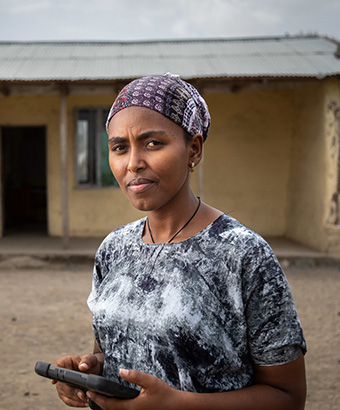
The training materials are on our mobile device. The video content, the drama, and the stories are fun, engaging, and motivating. It also inspires me to learn. If we have a chance to study and learn, and receive enough resources, we can have a significant impact on community health.
Workinesh Getachew,
a frontline health worker in Oromia Region, Ethiopia

SALARIED
Community health workers deserve to be paid as professionals, with fair compensation that arrives regularly and on time. Their compensation should reflect the demands of their roles—with respect to hours, workload, job complexity, and training—and should include benefits. Though all community health workers supported by Last Mile Health are paid, this is unfortunately not yet the norm worldwide: in Africa, for example, only 14% are financially compensated.
Because I am paid, I feel proud and my family and community see the importance of my work and how I am saving for my daughter’s education. I am saving for my education too.”
Ruth Tarr,
a community health worker in Rivercess County, Liberia

Because I am paid, I feel proud and my family and community see the importance of my work and how I am saving for my daughter’s education. I am saving for my education too.”
Ruth Tarr,
a community health worker in Rivercess County, Liberia
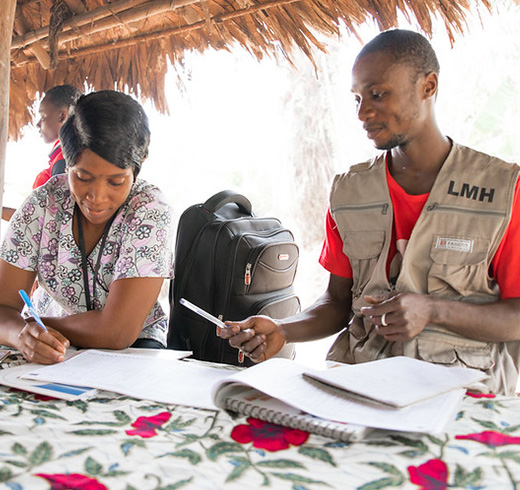
SUPERVISED
Consistent supervision is crucial to a community health worker’s success. Supervisors review community health workers’ caseloads and offer guidance, help solve problems, and provide valuable feedback. In national programs, they also provide the critical link to the nearest health center and facilitate referrals for patients who need more advanced care. With regular, reliable supervision, community health workers improve their ability to identify, diagnose, and treat cases correctly in the community, leading to higher quality care for patients.
We support them, giving training in tools that they lack. If there is an issue, I will try to resolve it. If they are out of forms, I will try to replenish them. When we are in supervision, I look at issues of health with the community health workers. They are not working alone.”
AUGUSTINE CARGBO,
who supervises community health workers in Tonkolili, Sierra Leone
We support them, giving training in tools that they lack. If there is an issue, I will try to resolve it. If they are out of forms, I will try to replenish them. When we are in supervision, I look at issues of health with the community health workers. They are not working alone.”
AUGUSTINE CARGBO,
who supervises community health workers in Tonkolili, Sierra Leone
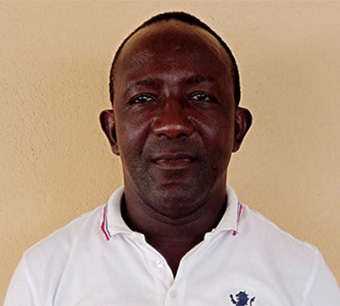
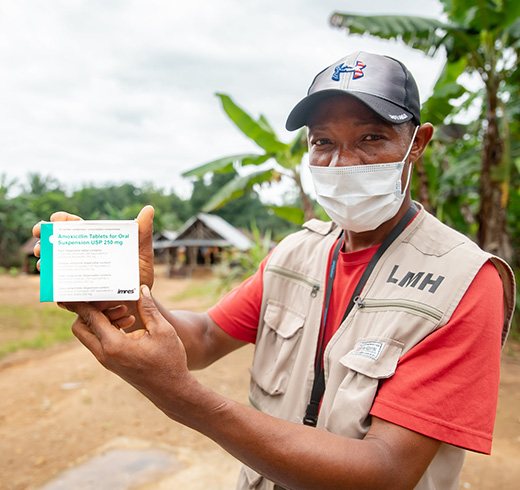
SUPPLIED
In order to effectively treat patients, community health workers need adequate and reliable supplies. This includes medicine as well as diagnostic tools like malaria rapid tests and mid-upper arm circumference tape to identify malnutrition. In addition, community health workers need personal protective equipment to keep themselves safe while they serve their communities. They also benefit from digital tools like smartphones or tablets for data collection, reporting, and on-the-job training.
Laura takes good care of people and encourages us. She gives us medicine, and the kids get better before the medicine runs out, and we don’t have to cross the river for anything.”
Laura Gbee,
the mother of a patient treated by community health worker in Rivercess County, Liberia

Laura takes good care of people and encourages us. She gives us medicine, and the kids get better before the medicine runs out, and we don’t have to cross the river for anything.”
Laura Gbee,
the mother of a patient treated by community health worker in Rivercess County, Liberia
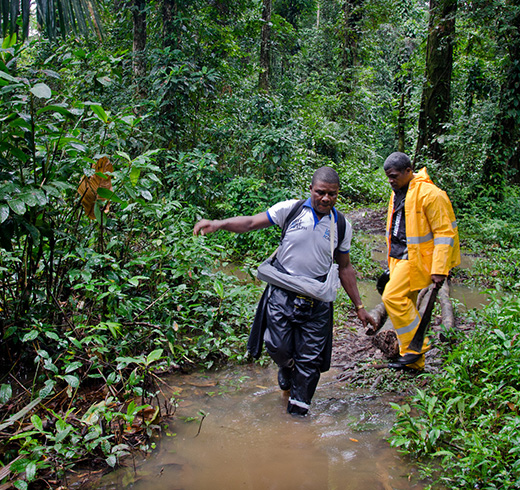
Part of a workforce operating at
SCALE
To advance health equity, community health workers must be part of a nationally scaled workforce. This means they are employed as part of a national program that reaches every community, even the most rural and remote. When operating at scale, community health workers can ensure all patients can access quality primary health services.
Universal health coverage isn’t possible without engaging remote communities. We know that through ongoing solidarity, we will continue to make a difference in the communities across Liberia and realize the dream of achieving high-quality universal health coverage even for those in the most remote communities.”
DR. WILHEMINA JALLAH,
Minister of Health in Liberia

Universal health coverage isn’t possible without engaging remote communities. We know that through ongoing solidarity, we will continue to make a difference in the communities across Liberia and realize the dream of achieving high-quality universal health coverage even for those in the most remote communities.”
DR. WILHEMINA JALLAH,
Minister of Health in Liberia
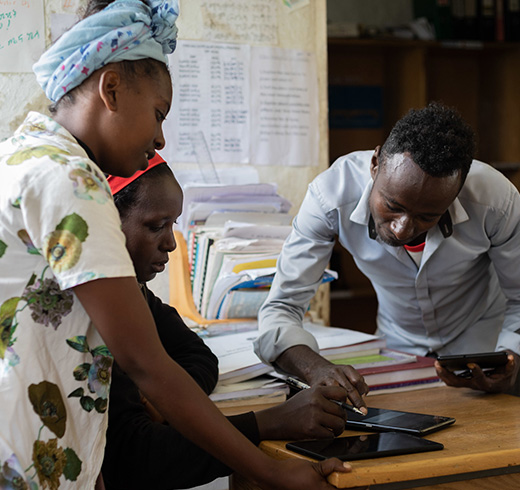
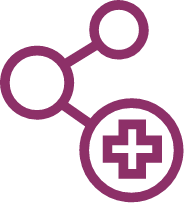
Integrated into the health
SYSTEM
Community health workers are only as strong as the health systems they are part of. This means they must be integrated into all components of the national health system, including data and financing, to be successful. When integrated into national data systems, community health workers can generate key community-level insights on health trends, emerging diseases, and outbreaks. When integrated into financing systems, they can consistently receive the support they need to succeed—skills, salaries, supervision, and supplies—as part of national budgets.
We can easily input data onto a digital system, providing an opportunity to speedily reach district and national level with much needed community-level household health data. I strongly believe this will strengthen our community health system.”
BRENDA CHIKOKOTO,
a community health worker from Mchinji District, Malawi
We can easily input data onto a digital system, providing an opportunity to speedily reach district and national level with much needed community-level household health data. I strongly believe this will strengthen our community health system.”
BRENDA CHIKOKOTO,
a community health worker from Mchinji District, Malawi
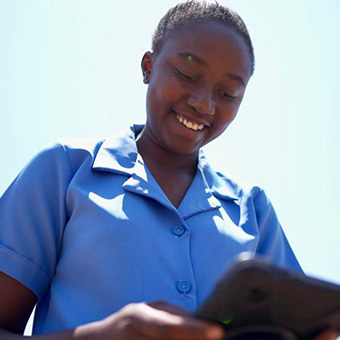
Join Us
TO BRING A HEALTH WORKER
WITHIN REACH OF EVERYONE,
EVERYWHERE.
SUPPORT OUR WORK >
